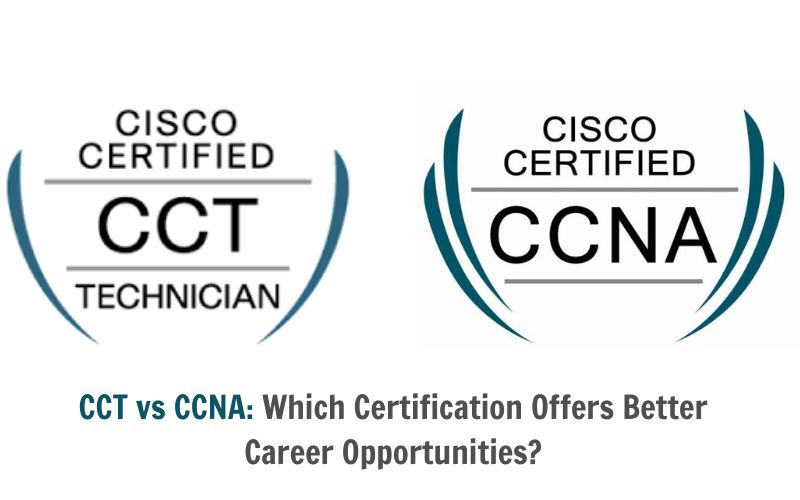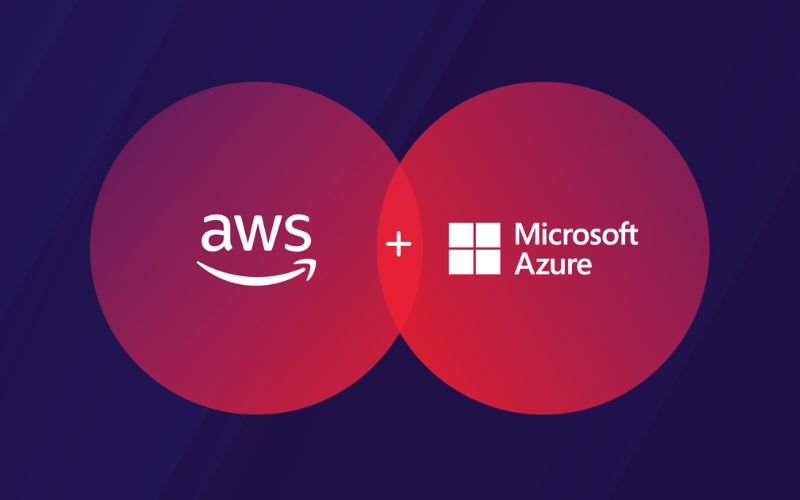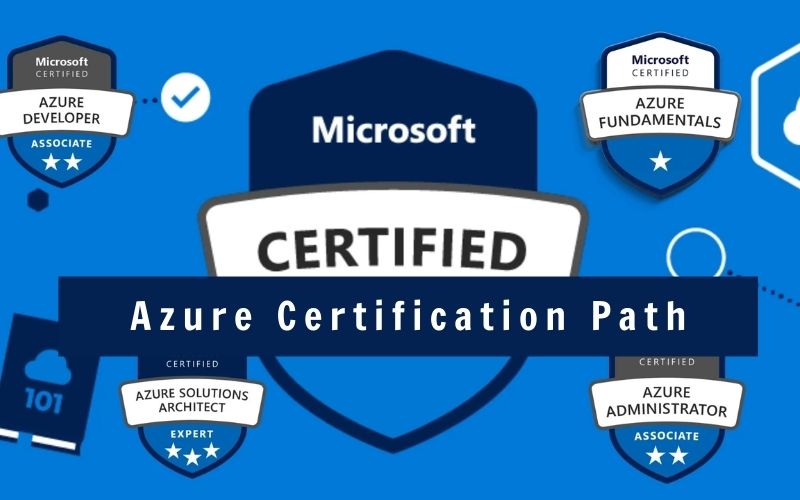Looking to become an ethical hacker? With this comprehensive guide, IT Exams Net will show you the top ethical hacking certifications to help you achieve your goal. Explore the benefits and requirements of popular certifications such as CEH, CISSP, and OSCP, and discover the best path to success in the world of ethical hacking.
What Is Ethical Hacking?

Ethical hacking is the process of detecting and mitigating vulnerabilities in a computer system or network. Ethical hackers employ the same tactics as malevolent hackers, but with the approval of the system or network’s owner.
Ethical hacking is used to improve system or network security by finding and resolving vulnerabilities and testing system or network security before hostile hackers have an opportunity to attack it.
Ethical hacking can be carried out by individuals or groups.
As an example,
White hat hackers are organizations that engage in ethical hacking. They are generally hired by businesses to evaluate their security systems and uncover flaws. White hat hackers adhere to a tight code of ethics and professional behavior.
Black hat hackers are those who participate in ethical hacking. Black hat hackers often hack without permission or authority, and they may act deliberately or destructively.
Why Become A Certified Ethical Hacker?

People frequently inquire whether ethical hackers are in great demand in the technology employment area. That inquiry has a simple answer: yes. Ethical hackers are now among the most in-demand IT specialists. The most skilled ethical hackers have extensive expertise in dealing with cryptography, footprinting, and monitoring organizational security procedures.
Organizations will continue to require ethical hackers and security analysts to assist them in safeguarding their systems and data. The typical data breach cost more than $4.24 million in 2021. Because of the ongoing rise in data breaches, cybersecurity specialists are in higher demand than ever.
Because these specialists are in high demand, there are several opportunities available and unfilled in this career sector. According to Cybercrime magazine, the number of unfilled cybersecurity jobs, including ethical hacking, will reach 3.5 million by 2025.
If you wish to fill one of these jobs, acquiring an ethical hacking certification is crucial in order to gain more direct experience in the industry, since most firms prefer to recruit people with extensive knowledge, abilities, and expertise in this subject. Certifications can help you improve your abilities and competence while also advancing your IT career.
What Do Ethical Hackers Do?

Although ethical hackers utilize the same tactics to test and circumvent security protections as their less ethical competitors, they are authorized to discover flaws. They do this so that businesses may document what was discovered and repair any vulnerabilities as quickly as feasible in order to improve security. Ethical hackers also offer one-on-one services to assist clients to retrieve data, emails, and documents that have been unavailable due to a variety of issues.
An ethical hacker is a computer and network security specialist who utilizes their talents to detect and repair security flaws in systems and applications, as well as to safeguard companies from cyber attacks. White hat hackers and penetration testers are other terms for ethical hackers.
The same tools and tactics are used by ethical hackers and malevolent hackers. They do so, however, with permission from the system owners whose systems they are evaluating, because ethical hacking is a valid and legal approach to assure system security and identify flaws that bad hackers may exploit.
Ethical hackers often have a background in computer science or information technology. They utilize their expertise in computer systems and networks to identify flaws and vulnerabilities. They then submit their findings to the organization so that they may be addressed before an attack happens. That is why businesses and organizations hire ethical hackers to test their security systems and identify vulnerabilities that need to be addressed. They may even be hired by government bodies to test the security of the key infrastructure.
Ethical hackers are critical in protecting companies from cyber attacks. Organizations would be vulnerable to attacks if they lacked their expertise.
Who Can Be An Ethical Hacker?

An ethical hacker may uncover and exploit holes and vulnerabilities in computer systems and networks. Instead of causing harm, ethical hackers utilize their knowledge to assist firms to enhance their security.
To be an ethical hacker, you must comprehend computer systems and networking as well as think like a hostile attacker. It would be ideal if you were proficient in coding and scripting so that you could identify and exploit vulnerabilities.
Ethical Hacker vs Computer Hacker
Ethical hackers are those that employ their hacking abilities for a good cause rather than for harm. Ethical hackers have similar talents to normal hackers, but they utilize them for different goals.
The primary distinction between an ethical hacker and a normal hacker is motive.
Ethical hackers want to improve system security, while familiar hackers want to wreak havoc or steal critical information. Because of this difference in motive, ethical hackers are more cooperative and law-abiding than normal hackers.
Top 6 Ethical Hacking Certifications

There are ethical hacking certification courses and boot camps available today that teach IT professionals the principles of the position and how to think like a hacker. With so many cybersecurity certification options available, determining one is ideal for you may be difficult. Many cybersecurity credentials, such as the CISSP, also cover ethical hacking and penetration testing. However, for individuals looking for qualifications specialized in ethical hacking, the six top ethical hacking certification tests will help you advance your IT career.
CompTIA PenTest+
Ethical hackers must be capable of testing network security and operating systems for flaws. Pen testing is a job-related function that is required for ethical hacking employment. Pen testers must frequently be able to think and move like a hostile hacker, which requires knowledge of malware and SQL injections. CompTIA PenTest+ can assist ethical hackers in developing the skills and knowledge required for success in their vocation.
The CompTIA PenTest+ certification exam has the advantage of combining performance-based and multiple-choice questions. This combination, together with the practice test, allows you to improve your IT security knowledge and hands-on experience in order to better prepare for your certification exam and your part in ethical hacking. Candidates gain penetration testing abilities in the cloud, hybrid, and conventional on-site infrastructures, as well as web application and Internet of Things expertise (IoT).
This certification will improve your ability to execute penetration testing on operating systems, networks, firewalls, web servers and applications, and wireless communications. It will also teach you how to do security risk assessments on systems.
The CompTIA PenTest+ test requires no prerequisites. Candidates are frequently recommended to have CompTIA Network+ and CompTIA Security+ certifications, as well as three to four years of hands-on experience.
Certified Ethical Hacker (CEH) Certification

The Certified Ethical Hacker (CEH) certification, which is managed by the EC-council, is another industry-wide recognized certification test that is meant to help you think like an ethical hacker. Furthermore, it aids in the development of your abilities in penetration testing, attack techniques, detection, and prevention.
The CEH exam assesses your understanding of security threats, risks, and countermeasures. For information security experts, the test course is guided through instructor training, video lectures, self-study courses, and hands-on laboratories. More experienced workers may appear for the test without attending the training courses if they produce a record of at least two years of cybersecurity or related experience.
Offensive Security Certified Professional (OSCP)
The Offensive Security Certified Professional (OSCP) certification is commonly regarded as the most challenging ethical hacking certification due to its hands-on nature. To obtain the OSCP, you must first finish an online course and then pass a series of OSCE tests over a predetermined length of time.
The courses cover subjects such as web application and network security, although the major emphasis is on penetration testing methodologies. You will have proved your ability to run in-depth penetration testing on big networks or complicated systems after completing this course.
The OSCP differs from other certificates in that it assesses applicants’ genuine skills. This test has no direct prerequisites, however, Offensive Security suggests that students have prior expertise with networking, bash scripting, Perl or Python, and Linux.
The OSCP certification implements an intensive learning and mastering environment that compares candidates’ abilities to those of other ethical hackers. It consists of a rigorous testing environment in which learners are given real-world ethical hacking scenarios to test on.
Certified Security Testing Associate (CSTA)
The Certified Security Testing Associate (CSTA) certification is intended for people who are new to the discipline of ethical hacking. The CSTA certification, developed by the United Kingdom-based 7Safe, will provide you with a fundamental grasp of undertaking security tests.
The CTSA is intended to be a boot camp-style training and test for people looking to break into the field, and it is intended for UK-based information security experts to successfully branch into ethical hacking.
To become an ethical hacker, you must first understand how hackers think and work in order to reduce attack risk. This can be difficult without actual hands-on experience. The CTSA assists with security testing, which is required before embarking on the route to becoming an ethical hacker.
The CSTA exam assesses your ability to conduct various security assessments and audits on a variety of systems using a variety of tools and methodologies. You will also be required to grasp how these tools interact with one another inside a network environment and during penetration testing exercises.
Computer Hacking Forensic Investigator (CHFI)

For individuals interested in a career in digital forensics or forensic analysis, the Computer Hacking Forensic Investigator (CHFI) certification is an ideal alternative. The CHFI certification is ideal for IT professionals who want to work in cybercrime investigation.
CHFI certification is administered by EC-Council and is intended as a mid-level certificate for IT professionals. The test includes topics like as memory analysis in Windows or other operating systems, mobile device forensics, incident response, and more.
This certification focuses on hacking tactics, digital forensics, and evidence analysis in the context of the Dark Web, IoT, and Cloud Forensics. CHFI’s tools and procedures will equip students to undertake digital investigations utilizing cutting-edge digital forensics technologies.
GIAC Penetration Tester (GPEN)
The Global Information Assurance Certification (GIAC) program offers the GIAC Penetration Tester (GPEN) certification as a professional-level credential. The GPEN certification confirms that applicants have the knowledge and abilities required to undertake network penetration testing.
The GPEN test examines fundamental security topics as well as advanced ethical hacking techniques. It also contains guidance on how to cope with legal difficulties and how to submit your findings. GAIC has cooperation with the SANS Institute for pen testing certificates for cloud settings and cloud security for people who wish to specialize in particular ethical hacking certification.
IT professionals training for the GPEN test will learn how to conduct a variety of attacks, such as Man-in-the-Middle, Denial of Service, and Social Engineering. They will also learn how to do penetration testing activities using numerous tools and how to write custom scripts to automate these processes. Because the course emphasizes on hands-on testing, you’ll also learn how to apply your knowledge in real-world scenarios.
The GPEN certification is intended for professional security testers with at least two years of experience.
Which Job Roles Require Ethical Hacking Certification?

Most professions that need an ethical hacking certification also necessitate skills in penetration testing, systems and network auditing, system administration, and risk management assessments. Certifications and experience in ethical hacking are in great demand at several large technological organizations, including IBM and Google. Some of the occupations that commonly necessitate an ethical hacking certification are as follows:
- Tester of penetration
- Assessor of Vulnerabilities
- Analyst in information security
- Analyst for security
- Hacker with integrity
- Consultant in security
- Architect/security engineer
- Manager of information security IT auditor
- IT professional
How To Choose the Right Ethical Hacking Certification?

Ethical hacking is a rapidly growing cybersecurity industry, and getting certifications helps you to learn new skills and develop your career.
When studying credentials, it is preferable to select a program that is most relevant to your job aspirations. Consider the following four stages while selecting the best ethical hacking certification:
- Make a list of the relevant talents you already have.
- Make a list of employment roles that interest you.
- Determine the abilities you will need to develop for these positions.
- Then, connect these abilities to the appropriate certification.
Because the different ethical hacking certificates available need a considerable amount of time and commitment, researching and selecting the ideal one for your objectives and needs is just as important as studying for the certification itself.
It’s also vital to realize that many positions may demand a degree in addition to your certification. Because ethical hacking and cybersecurity are burgeoning industries with high demand, you may begin preparing today. Investigating job openings on networking sites like LinkedIn or ZipRecruiter might help you learn what firms are looking for in ethical hackers.
Most certification programs will need some prior knowledge and expertise in information security. However, when it comes to getting a job in information security, a mix of a degree, certification, and experience may be quite useful.
How To Freelance As An Ethical Hacker
Ethical hackers who wish to work on a range of projects or create their own schedules may choose to work as freelancers. Ethical hackers will have to negotiate their own contracts, maintain their own businesses, and handle their own benefits as freelancers—all while having the freedom to work when and when they choose.
With social networking platforms for professionals seeking people who need their skills, finding contract employment has grown more convenient. Two websites, Neighborhood Hacker and the Ethical Hacker Search Engine, enable ethical hackers with certificates to advertise their services and those seeking them to discover a professional. Both sites act as brokers and assist in the resolution of conflicts between ethical hackers and clients.
More broad sites for independent freelance consultants are also great places to get customers. UpWork and Freelancer.com are two of the best places to look for this. These websites combine job postings with project management tools to help both the client and the ethical hacker manage their relationships.
FAQs

Which certificate is best for ethical hacking?
The greatest ethical hacking certification may differ based on your unique aims and interests, therefore there is no one-size-fits-all answer. The Certified Ethical Hacker (CEH) and the Offensive Security Certified Professional are two popular qualifications in this discipline. (OSCP). If you are serious about becoming an ethical hacker, either of these credentials is a fantastic place to start.
Is OSCP better than CEH?
The greatest ethical hacking certification may differ based on your unique aims and interests, therefore there is no one-size-fits-all answer. The Certified Ethical Hacker (CEH) and the Offensive Security Certified Professional are two popular qualifications in this discipline. (OSCP). If you are serious about becoming an ethical hacker, either of these credentials is a fantastic place to start.
What roles can an ethical hacking qualification benefit?
Ethical hacking certifications or skills can help a variety of jobs inside a business.
They can help to improve the security of systems and networks, as well as test their resilience to malicious attacks.
Furthermore, ethical hacking certifications can assist in educating employees about the importance of cybersecurity and the possible hazards associated with negligent online activity. Finally, ethical hacking credentials can aid in the development of a more secure and watchful firm that is better prepared to deal with the ever-changing world of cyber threats.
Is CEH enough to get a job?
Having a Certified Ethical Hacker (CEH) certification may surely help your job application, as it displays your dedication to ethical hacking and readiness to learn new hacking techniques. Furthermore, many businesses prize CEH holders’ ability to think like a hacker and discover possible security flaws in their systems.
What is the CEH certification salary?
Although the Certified Ethical Hacker (CEH) certification is not necessary for the majority of professions in the sector, it can help you get one. The CEH is a globally recognized certificate that certifies an individual’s ability to detect, analyze, and mitigate risks in a company’s network and systems. Earning the CEH can help job seekers stand out from the crowd and demonstrate to potential employers that they have the skills and knowledge necessary to defend their systems.
Final Words
Congratulations on completing our guide on ethical hacking certifications! With the increasing demand for cybersecurity professionals, earning a certification in ethical hacking can open doors to lucrative career opportunities. Remember to choose a certification that aligns with your career goals and invest time and effort in preparing for the exam. Continuously learning and staying up-to-date with the latest security trends will also help you advance in your career. Best of luck on your journey toward becoming a certified ethical hacker!



